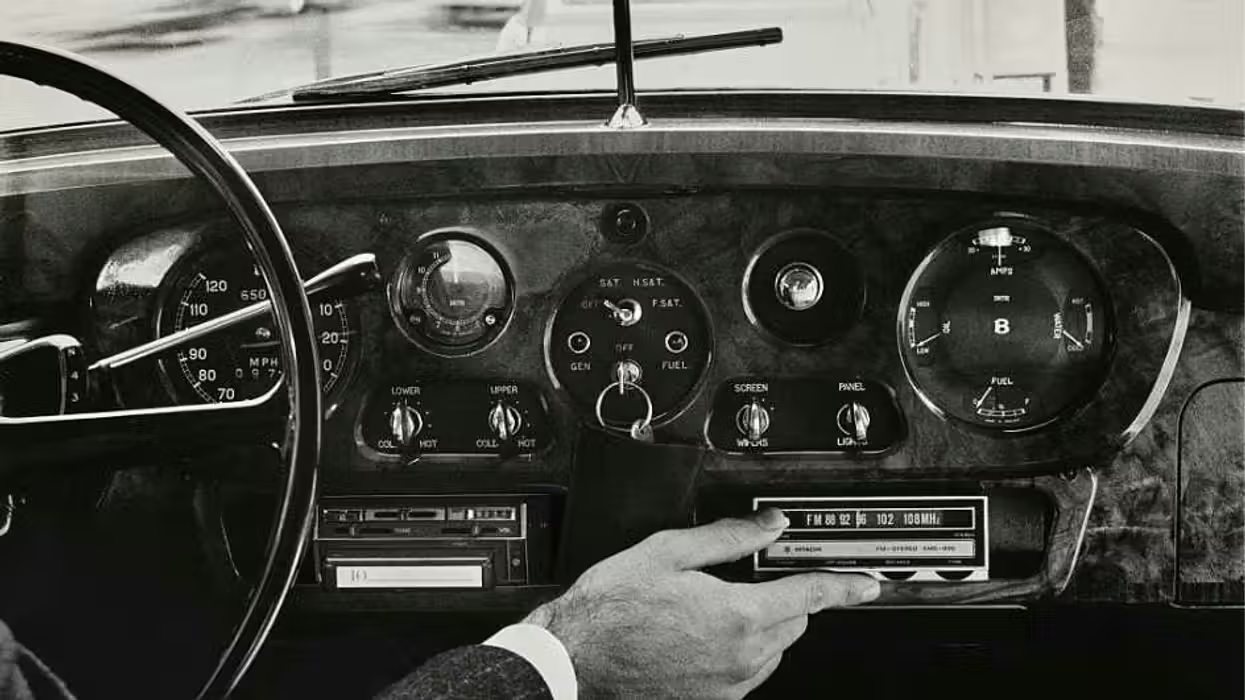
© 2025 Blaze Media LLC. All rights reserved.
When we open our newspapers on Father’s Day, we expect to find something nice about dads—often heroic dads. Yet, for every boy or girl whose father was a doctor or Marine who stormed the beaches of Normandy, there is a dad who was more complicated; not a great dad but one still loved and had an impact, sometimes in unorthodox ways. This describes a father I’ve studied: Jack Reagan, father of the late president, Ronald Reagan.
Born in the Midwest, Jack Reagan was a shoe salesman who scraped and scrapped so his family could get by. And they didn’t get by very well. Before long, drinking—a lot of drinking—was helping Jack to cope.
Jack uprooted the family at every turn. Throughout young Ronald Reagan’s childhood, his family never owned a home.
In one of these moves, to the little Illinois town of Galesburg, Ronald had a kind of epiphany. The lonely boy ventured to the attic of his latest home. The previous tenant left behind a collection of bird’s eggs and butterflies enclosed in glass. The curious first-grader escaped into the attic for hours at a time, marveling at the eggs’ rich colors and the intricate wings of the butterflies. “The experience,” Reagan remembered, “left me with a reverence for the handiwork of God that never left me.” These wonderments, said Reagan, were like “gateways.” The notion of a Creator was etched into the boy’s consciousness. He later thanked that previous tenant as “an anonymous benefactor to whom I owe much.”
Ironically, this dramatic rendezvous with the Creator was Jack’s inadvertent doing.
Moving took a toll on the young Ronald; it created a void in him—a hole that religion came to fill. In need of a rock of reliability, he looked to where his mom, his heart, and his desolation pointed him: upward. There, he found what he perceived as a permanent friend—God, who was always in His place, accessible at any moment, who never moved on him.
Another foible of Jack’s may have contributed to his son’s turn to God. It was a brisk February evening in Dixon, Illinois in 1922. Returning home from a basketball game at the YMCA, 11-year-old Ronald expected to arrive to an empty house. Instead, he was stunned by the sight of his father sprawled out in the snow on the front porch. “He was drunk,” his son later remembered. “Dead to the world … crucified.” Jack’s hair was soaked with melted snow, matted unevenly against the side of his reddened face. The smell of whiskey emanated from his mouth.
Young Reagan stood over his father for a minute or two. He wanted to simply let himself in the door and pretend his dad wasn’t there. Instead, he grabbed a fistful of overcoat and heaved Jack to the bedroom, away from the weather’s harm and neighbors’ attention. He felt no resentment, just grief. This, after all, was the man who had always carried him.
The event shook the young Reagan; he never forgot it. Four months later he was baptized at his mom’s church.
The story of Ronald Reagan’s dad is sad. Yet, it describes many father-son relationships and reveals how a complex father can possess both negative and positive attributes—and, yes, there were positives.
Jack instilled in Ronald Reagan the work ethic that propelled him into radio, then the movies, and then television—all in the heyday of each medium. In the 1930s, when most of America suffered, Ronald Reagan soared. He would go on to twice win (in landslides) the governorship of the nation’s largest state and the presidency of the world’s most powerful nation. His father taught him that success comes from within, not by a handout. Reagan saw in his dad an ability to roll with the punches, a trait crucial to Reagan’s thick political skin. He also learned from his father the gift of gab that the Great Communicator ultimately mastered.
Moreover, completely neglected by history was Ronald Reagan’s hatred of racial and religious bigotry. Here, too, his dad had a role. Jack didn’t just tell his son that racism was bad; he shared indelible accounts that Reagan internalized and retold throughout his life.
Of course, dads can’t do everything. For the duty of spiritual development, Jack Reagan delegated to his wife, Nelle. Give him credit, I suppose. Jack knew his limits and his wife’s strengths. Nelle excelled at the task.
Really, it was the Reagans together, both Jack and his wife, who serve as an excellent example of how it takes two—a mom and dad, each bringing separate strengths to the table—to best raise a child. Maybe that’s a worthwhile thing to remember on Father’s Day, and any day.
Dr. Paul Kengor is professor of political science at Grove City College, executive director ofThe Center for Vision & Values, and author of the book, “The Communist: Frank Marshall Davis, The Untold Story of Barack Obama’s Mentor.”
Want to leave a tip?
We answer to you. Help keep our content free of advertisers and big tech censorship by leaving a tip today.
Want to join the conversation?
Already a subscriber?
more stories
Sign up for the Blaze newsletter
By signing up, you agree to our Privacy Policy and Terms of Use, and agree to receive content that may sometimes include advertisements. You may opt out at any time.
Related Content
© 2025 Blaze Media LLC. All rights reserved.
Get the stories that matter most delivered directly to your inbox.
By signing up, you agree to our Privacy Policy and Terms of Use, and agree to receive content that may sometimes include advertisements. You may opt out at any time.






